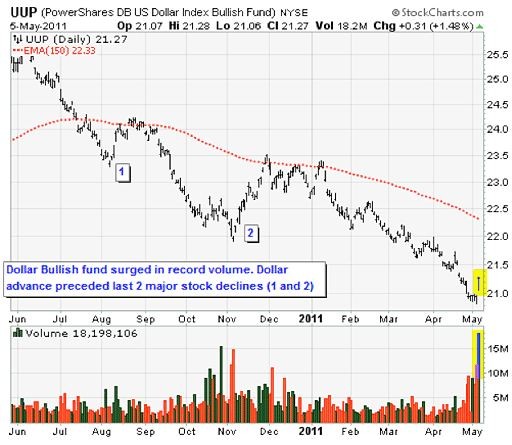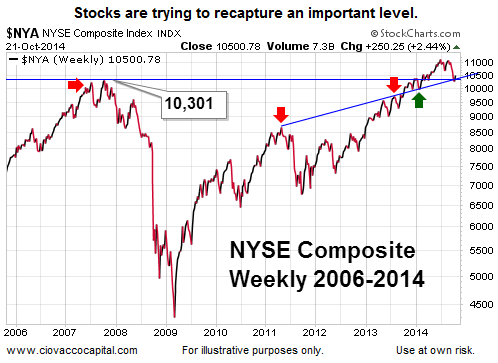Why Did the Dow Crash 500 Points (NYSE DIA NYSE IWM NYSE SPY NASDAQ QQQ NYSE VXX NYSE IYR)
Post on: 16 Март, 2015 No Comment

August 04, 2011
Retail investors are hitting the sell button again as the Dow (NYSE:DIA ) has now erased all the gains for 2011. But the question remains: is this the beginning of another market crash like 2008, or something less extreme?
Although today the VIX (NYSE:VXX ) spiked over 35% higher on fear, a quick spot check to all my contacts on Wall Street confirms institutional investors are not scared like in 2008; rather, they are very uncertain about how much the economy will slow. Unlike 2008, this means elite investors are not worried about derivative bubbles or $250 million real estate projects built-out with no demand. However, top investors are trying to gauge just how far the economy will pull back.
No one likes a recession. But lets get real: the U.S. has never really come out of the first recession we merely restarted what was a stalled engine. Sure, the National Bureau of Economic Research says the recession ended and we moved from contraction to expansion. But so long as housing prices (NYSE:IYR ) keep tanking and unemployment remains high, we are not in a total growth-driven economy. As soon as we accept the new normal of very low economic activity (relative to a pure bull economy), then we can stop fearing another crash and learn to accept the muddle. And this muddle is going to have its pain because we are making a huge transition from an industrial-based economy to an information-based economy all while dealing with an inverted pyramid of demographics (which I explain in more detail here ).
Take solace: Slow/low growth is very different than an economic bubble crashing. In 2008, both the economy and markets literally collapsed. At this moment, we have central banks around the world acting as safety nets. In 2008, the bubble economy got high on exuberance and disconnected from reality. At this moment, the economy is simply recovering from ground zero and most people are still recovering from 2008s post traumatic stress disorder.
Right now we also have a much more stable situation where companies are booking profits and reporting solid earnings. Sure, earnings is somewhat of a mixed bag. But there hasnt been a harbinger of the sky falling.

On a macro front, the U.S. has resolved the debt limit situation. So, there will not be a cataclysmic default. Europe is on shakier ground, but at least governments and central banks are moving to prevent systemic earthquakes in Greece, Italy (NYSE:EWI ), and Spain (NYSE:EWP ).
Do we need to retest S&P (NYSE:SPY ) 666? Uh, no. The entire premise behind a retest is to see whether we are now stronger at that point than before. We can spare ourselves the absurd exercise. OF COURSE we are stronger today than at the worst of the market and economic collapse.
All this is not to say a roaring economy is at hand. However, the apocalypse isnt here either. After a healthy correction in equity prices, there is much more reason for institutional investors to start buying bargains. The web economy is having a moment of exciting growth. and multinationals still see an economic recovery underway.
At the end of the day the apocalyptic bears will continue parading their broken clocks and the perma-bulls will see only sunshine on the cloudiest day. But reality is messier than that. Our deep desires for a clean binary world simply wont be fulfilled during this rocky road to recovery. So keep your eye on the middle road and dont get caught following the emotional market extremists.














